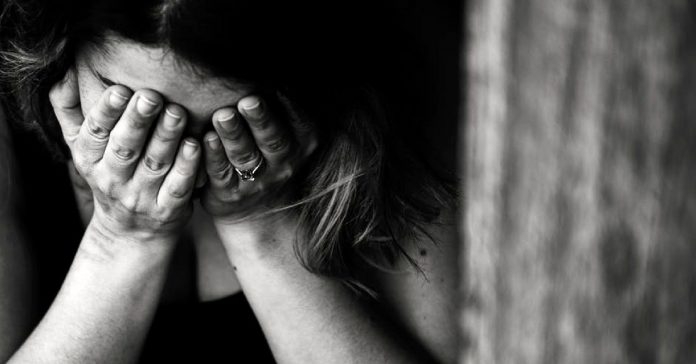This article is written by Ms. Shivani Agarwal, from the Institute of Law, Nirma University. This is a comprehensive article that discusses in detail the issue of whether a convicted rapist can be refused free legal aid.
Table of Contents
Introduction
Rape, in its general sense, can be understood as a force that someone uses to have sex against a person’s will. If we consider the literal interpretation of the term ‘rape’, then rape is a type of sexual assault that involves sexual intercourse against the will of the victim.
The offence of rape has increased at a very high rate in India and there are many reasons to it like the existence of a patriarchal society (It is a social system where male dominates and exploits female), legislation (The Indian legislature has a number of laws that criminalises rape as an offence but still rape happens in the country because of less strict implementation of the laws), gender inequality, etc.
Sexual harassment and rape are two sides of the same coin i.e., abuse against women by the men. The main victim in such crimes are women only. Sexual harassment is an act that primarily shows male dominance over women in society. The Indian nation seen rape of an 8-month-old girl to a 100-year-old woman. As per public data, nearly four women are raped in this country every hour. If these are the cases that are reported, then one might get a horrifying image when it comes to unreported cases because of the reason that the victim’s family might have to face public embarrassment.
Rape laws in India
The Indian Penal Code, 1860 provides for rape. Section 375 states that a man commits a rape when:
(1) If the man has sexual intercourse against the woman’s will.
(2) The woman has not consented for such intercourse.
(3) In a situation where the woman gave her consent but such consent was obtained by placing that woman or another person in a position where there was danger of death or harm that she is involved in.
(4) Where a man who is not the husband of the woman but her consent was obtained in a way that the woman believes that man and the woman are legally married.
(5) With her permission, when, at the moment of giving that consent, she is unable to understand the essence and effects of what she consents to due to unsoundness of mind or intoxication or the administration by a man directly or by another of some stupefying or unhealthy drug or some substance.
(6) Where the consent has been obtained or not in a situation where the woman is less than 16 years old.
While Section 375 talks about the offence of rape, Section 376 of the IPC talks about punishment for rape. As per Section 376, when a man is convicted for raping a woman, then he is entitled to a minimum imprisonment for ten years which may increase to a life sentence or even a death sentence depending upon the facts and circumstances of the case.
Even though there are such strict laws for committing rape in India, many rapists are roaming freely in the country and this crime is increasing day by day in our nation because of the slow and inefficient investigations.
Landmark judgements of rapes in India
The cases associated with violence against women, outraging their modesty, rape, etc. increasing every day. Following are some landmark judgements that have brought some kind of significant changes in our justice system:
(1) Mathura case: A young girl named Mathura was raped by two policemen while she was in custody of police and hence making it an incident of custodial rape. The Sessions Court held the judgement in favour of the policemen by stating that the victim had given her consent for intercourse. An application was filed in the Bombay High Court and the Court held the defendants guilty. Finally, when the case knocked the doors of the Apex Court, the Court finally gave the judgement acquitting the two policemen by stating that there were no marks of injury or signs of any struggle on the victim’s body and hence it would be considered as voluntary.
After the judgement, there were huge protests in the country and rape laws were amended. Before this case, the laws were prejudiced towards the rapists.
(2) Bhanwari Devi case: This 1992 landmark judgement was a case related to sexual harassment against women at workplace. The issue was whether the employer is responsible in cases of sexual assault by its worker or its workers at the workplace?
The Sessions Court gave the judgement against the victim and because of which there was a huge outburst of many women organisations and various groups that were supporting women. A PIL was filed in the Supreme Court and the Court held that sexual harassment at workplace of a woman is in violation of her fundamental rights under Article 14, 15, 19 and 21 and hence gave the judgement in favour of the victim. This judgement laid down many guidelines regarding sexual harassment at workplace. Various committees and guidelines were set regarding duties of the employer.
(3) Nirbhaya case: A 23-year-old girl was gangraped brutally on a bus in the capital of the nation. She was attacked so severely that her intestines got pulled out of the body. There were a total of five accused including a minor. One accused committed suicide and other four accused were sentenced to death except for juvenile.
This case even got international recognition and after such a horrible incident, it shocked the nation to its roots and there were huge protests while the judgement was delivered. After this case, various amendments were brought in IPC, Indian Evidence Act, 1872 and POCSO, 2012. These laws after amendments broadened the scope of rape’s definition and stated that there should be a capital punishment for cases where the rape causes death of the woman or leaves her in a permanent vegetative state.
Recently, a 23-year-old woman from Unnao, UP was gangraped and when she was on her way to see her lawyers in the morning, she succumbed to injuries after five men, including the rape victim, chased her down and burnt her alive. That was not her first attempt at gagging her.
In Telangana, a woman was set on fire after she was gangraped. The police later killed the suspects in an encounter which was encouraged by the public and the same encounter was condemned by the Chief Justice of the Supreme Court.
These were some cases that changed the whole perspective regarding rape in India. These were the judgements that brought many amendments in the Indian laws.
Legal remedies available to convicts in India
Article 137 of the Constitution of India states about the power to the Apex Court to review the orders and judgements passed by it. Under this Article, if the Court feels that there has been some obstruction of justice in a manner that injustice was done to the accused, then the Court might change the original judgement given by that Court only. The review petition can be filed under Section 114 and Order 47 of the CPC, 1908.
If the review petition is also dismissed, then curative petition can be filed by the petitioners. The curative petition is forwarded to the three most senior judges and the judges’ bench who passed the judgement would be sent to them. If in the petition most of them find substance, then the case will be sent to the same bench of judges.
The convicts may file a Mercy Petition that has to be accomplished within a span of seven days from the day on which the prison superintendent tells the accused offender of the petition’s dismissal.
Article 39A mentioned in Part IV of the Indian Constitution ensures free legal aid to all the Indian citizens irrespective of economic and other barriers. The double objectives of DPSPs mentioned in the Indian constitution are to secure social and economic democracy, security and justice for all.
This protection provided to the citizens is considered as one of the main reasons because of which the offenders who have committed heinous and serious offences sometimes get away. This legal aid has been provided under Article 21 of the Indian Constitution.
Legal remedies available to rape convicts while referring to the Nirbhaya case
In the Nirbhaya case, the final judgement was postponed several times because of the legal remedies available to the convicts. One of the convicts, Mukesh asked for a new lawyer as he was not represented by any lawyer. The Court appointed a new lawyer to represent him in the Court. The convict after getting a new lawyer stated that he was not satisfied with the services of the newly appointed lawyer. Another convict, Pawan also asked the Court to replace his lawyer to argue for him. The Court appointed a new lawyer and the lawyer requested the Court to give him time to get familiar with the case.
While all the legal remedies that are available to the convicts, legal remedies of three convicts were exhausted and only Pawan was left with a legal remedy to file a curative petition and a mercy petition. For this remedy, the Delhi High Court gave 7 days’ time to use the remedies available to him. The President of India rejected the mercy petition and all four convicts were hanged to death.
So, if we observe the Nirbhaya case, then we can state that the convicts are given legal remedies to have a chance to protect themselves, justify their situations, etc. In this case, the accused Pawan had a legal remedy to file curative and a mercy petition.
Thus, as mentioned under the Indian Constitution it has been provided that equal opportunity to receive and secure justice must be provided to all the citizens irrespective of their economic or other disabilities. This can be easily observed in the Nirbhaya case as Pawan even after being held convicted was given many opportunities to defend himself.
Hence, it would not be wrong to state that a convicted rapist cannot be denied free legal aid. It is the right that our constitution has provided to the citizens.
Critical Analysis
In my opinion, the refusal of free legal aid is a good option that our Indian judiciary system can look for. The main reason is to avoid unnecessary delays in such sensitive matters like in the Nirbhaya case, just because of availability of legal remedies to the convicts, the judgement got delayed several times.
This can be supported with a reasoning that it should be totally subjective depending upon the facts and circumstances of the case whether to provide legal remedies to the convicts or not. By this step, many rape cases can be solved in very less time and in an efficient manner.
Conclusion
Our nation has developed in every aspect whether it is technological, political, economic, etc. but still there are many loopholes that have disturbed the growth of the nation and one of such social aspect is rape. Rape not only shows how much unsafe a place for a woman is while it also shows the thinking and approach of a society towards woman. Rape is a very big concern for many countries especially in a country like India where there exists a huge diversity.
It is a saying that ‘Even the worst thing can be fixed’, so there is an urgent need to develop and transform Indian laws in a way that heinous and serious offences such as rape can be avoided. Eradication or even a little growth in making this society rape-free can be a very huge step towards making women feel safe in their country.
References
- https://lexlife.in/2020/02/13/remedies-available-after-award-of-death-penalty/#:~:text=Article%20137%20of%20the%20Indian,person%20can%20file%20curative%20petition
- https://www.outlookindia.com/website/story/india-news-nirbhaya-case-five-challenges-before-delhi-court-in-issuing-a-death-warrant-today/347419
LawSikho has created a telegram group for exchanging legal knowledge, referrals and various opportunities. You can click on this link and join:
 Serato DJ Crack 2025Serato DJ PRO Crack
Serato DJ Crack 2025Serato DJ PRO Crack










 Allow notifications
Allow notifications


